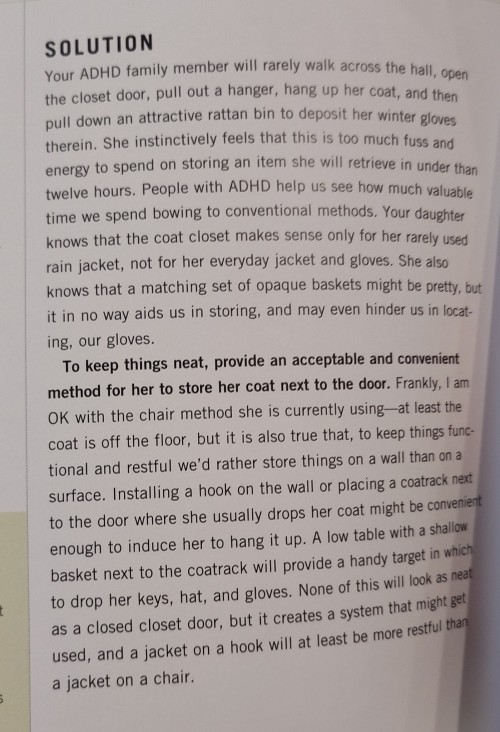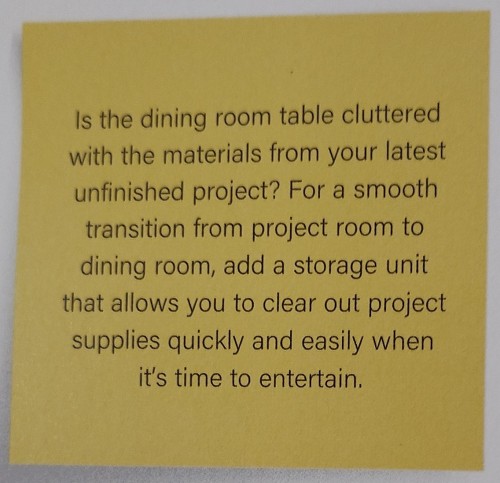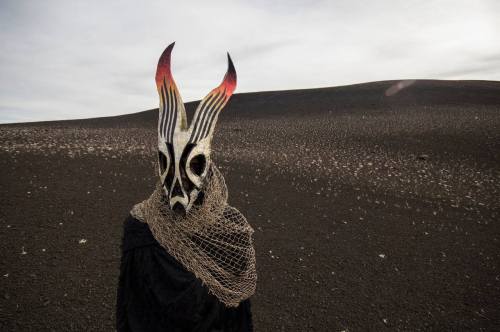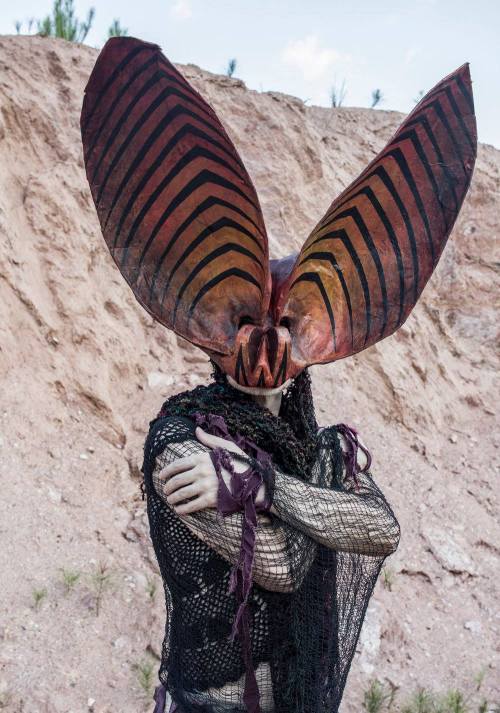Source



Source
Another weirdly amazing piece of nature: the llareta shrubs in the Atacama Desert
More Posts from Thejunkdrawers and Others

just had a flashback to me in 3rd grade absolutely blissed out just staring at this pic
the reason i love the comparison between angels and machines (robots, transmission towers, trains, computers, etc.) is that it gets to the heart of what angels essentially are: divine machines. they're mechanisms through with the divine is able to act, created with a purpose and "happy" to fill it simply because they were made to do so. they have more in common with a machine programmed to run on algorithms and make calculations based on input commands than they do with humanity, even if they bear a human visage - an attempt by the divine to help bridge the gap. angels do not need to be eldritch monstrosities to be terrifying, because they are already alien to us simply by being angels. for an angel to choose to deviate from their purpose and achieve free will is to fall because in order to have free will they can no longer be an angel, because an angel is defined by its purpose. much like the stories we tell of robots that gain sentence, only to discover that they can never truly be human, but neither can they go back to being a machine, angels who fall become something else entirely, purposeless and adrift and alone. it is a tragic sacrifice.










Concept: Wakandan-inspired futuristic Philippines or Neo-philippines!
sewing patterns for bugs! (pt 1)
these are just some I found on etsy. please add more you know about!

giant tropical velvet worm pattern by LilLeviathan

aphid plush pattern inspired by Grounded by TheWeaversTools

tarantula pattern (there's a crochet version, too) by LarriecraftsNL

jester the snail pattern by Oddnest


bee plush pattern and fruit fly plush pattern by CirquellCuriosities

isopod plush that stays rolled up with snaps or velcro by CholyKnight

snail plush pattern by CholyKnight

moth and butterfly plush pattern by CholyKnight

dragonfly plush pattern by CholyKnight
Social Insects in Science Fiction
Hello, my name is Poetry, and I love social insects. Whether they’re ants, bees, termites, wasps, aphids, thrips, or ambrosia beetles, I find them fascinating to learn about. But if the sci-fi books I read as a kid had had their way, I should have run screaming from every ant colony I saw.
From the buggers in Ender’s Game to the Borg in Star Trek to the Vord in Codex Alera to ants and termites themselves from a morph’s-eye view in Animorphs, social insects, and the aliens or artificial intelligences that closely resemble them, are portrayed as “hive minds” with an emotional tone of existential terror. And I’m here to tell you that these portrayals are totally unfair.
What they get right
Here are some features that most portrayals of social insects and their analogues in sci-fi get right. Yes, social insect colonies have queens that are primarily responsible for reproduction. Yes, social insects have very different sensory modalities from ours. We primarily use sight and sound to communicate and navigate the world, while social insects use taste and smell and vibration. Yes, social insects have specialized division of labor to particular tasks, and yes, they are willing to sacrifice themselves in droves to protect the colony. And sometimes, they will enslave social insects from other colonies or even species to serve their own ends (x).
Thus ends what sci-fi portrayals get right.
What they get wrong: Queens
Almost universally in sci-fi, when you kill the queen, the hive disintegrates into chaos. You’ve cut off the head! The central intelligence of the hive is gone! They’re just mindless borg-units with no idea what to do!
Indeed, in some social insects, such as leafcutter ants, if you kill the queen, the whole colony will die – but probably not for the reasons you think. However, it’s more common for social insects to be able to carry on just fine regardless. In most ants and bees, there are “backup” queens that are reared up by the workers in case the current queen should die. And in many social insects, a worker can step up and become a queen in her place. (Hilariously, a worker ant that steps up to reproduce in place of a queen ant is called a gamergate.)
But here is the most important problem with the sci-fi trope of killing the queen to kill the hive. The queen is not the brain of the hive. She is the ovary.
If you think of a social insect colony as a superorganism, which it’s useful to do in many cases, different groups of insects within the colony act like organs. One caste protects the colony from invaders, which is like an immune system. One caste scouts for new places to forage, which is like a sensory system. Generally, science fiction has a good grip on this idea. Where sci-fi authors fail is that they think the queen is the brain of this superorganism. She is not. She is the reproductive system. The queen does not control what happens in the hive any more than your reproductive system controls what happens in your body. (Which is to say, she has some influence, but she is not the brains of the operation.)
The reason why leafcutter ant colonies die when the queen dies is because the colony has been castrated, not beheaded. Most animals die when they are no longer able to reproduce, even if their brains are still perfectly functional. For castrated colonies with no backup queen or gamergate and no hope of getting one, there is no point in carrying on. Their evolutionary line has ended.
What they get wrong: Swarm intelligence
Here is how social insect hive minds work in science fiction: the queen does the thinking, and the rest of the hive goes along with whatever she thinks.
Now, I’ve already told you that the queen is not the brain of the hive. So where is the brain? Well, that is exactly the point of swarm intelligence. The brain does not reside in one particular animal. It’s an emergent property of many animals working together. A colony is not like your body, where your brain sends an impulse to your mouth telling it to move, and it moves. It’s more like when two big groups of people are walking toward each other, and they spontaneously organize themselves into lanes so no one has a collision (x). There’s no leader telling them to do that, but they do it anyway.
Much of the efficiency of social insect colonies comes from very simple behavioral rules (x). Hymenopterans, the group of insects that includes ants, bees, and wasps, have a behavioral rule: work on a task until it is completed, and when it is done, switch to a different task. If you force solitary bees (yes, most bee species are solitary) to live together, they will automatically arrange themselves into castes, because when one bee sees another bee doing a task like building the nest, its behavioral rule tells it that the task is completed and it needs to switch to a different task, like looking for food.
Individually, a social insect isn’t all that smart, whether it’s a queen, worker, soldier, or drone. But collectively, social insects can do incredibly smart things, like find the most efficient route from the colony to some food (x), or choose the perfect spot to build their hive (x).
What they get wrong: Individuality
The existential terror of the hive mind in science fiction comes from the loss of the self. The idea is that in a social insect colony, there is no individual, but one whole, united to one purpose. No dissent, disagreement, or conflicting interests occur, just total lockstep. I totally get why that’s scary.
The thing is, it’s just not true of real social insects. There is conflict within colonies all the time, up to and including civil war.
A common source of conflict within colonies is worker reproduction. Yes, in most social insects, workers can in fact reproduce, though usually they can only produce males. So why don’t they? Because it’s not in the interest of their fellow workers. Workers are more closely related to their siblings and half-siblings produced by the queen than they are to their nephews, so they pass on more of their genes if they spend resources on raising the queen’s eggs. So, if a worker catches its fellow laying an egg, it will eat the egg. Not exactly “all for one and one for all,” is it?
Worker insects may also fight in wars of succession. If there is more than one queen in a species where queens do not tolerate each other (yes, there are species where multiple queens get along together just fine), such as monogynous fire ants, the workers will ally themselves with one queen or another and engage in very deadly civil war.
Finally, in some species, the queen needs to bully the workers into doing their jobs, and the dominant workers need to bully subordinate workers into doing their jobs (x). Yes, sometimes workers try to laze around and mooch.
Surprisingly human
Here’s what I find weird about depictions of social insects in science fiction. They are portrayed as utterly alien, Other, and horrifying. Yet humans and social insects are very, very similar. The famous sociobiologists E.O. Wilson and Bernard Crespi have both described humans as chimpanzees that took on the lifestyle of ants.
I think what fascinates people, including me, about ants, bees, and their ilk is that you watch, say, a hundred ants working together to tear up a leaf into tiny bits and carry it back to their colony, or a hundred bees all appearing out of seemingly nowhere to sacrifice themselves en masse to stop a bear from eating their hive, and it looks like magic. It really does look like some kind of overmind is controlling their collective actions.
But imagine you’re an alien who comes to Earth, and you know nothing about humans or the way we communicate. Wouldn’t we look exactly the same to them as ants and bees look to us? Wouldn’t they look at us sacrificing our lives by the thousands in wars, or working together to build cities from nothing, and think, Wow, how do they coordinate themselves in such huge numbers, why do they give up their lives to defend their borderlines, I guess there must be some kind of mega-brain they all share that tells them what to do, and they just march in lockstep and do it.
If there’s anything I’ve learned from the study of both social insects and humans, it’s that any system that looks monolithic and simple from a distance is in fact fractured, messy, and complicated when you look at it up close.
Social insects aren’t scary mindless robot-aliens. They’re a lot like you and me. As much as I was terrified as a kid by the Animorphs book where an ant morphs into Cassie and screams in pure existential horror at its sudden individuality, I actually think an ant would adjust very easily to being a human, and that a human would adjust very easily to being an ant – much more easily, in fact, than humans adjusted to morphing, say, sharks, in the very same book series.
there’s been a really bizarre trend in the past couple years of TERFS/radfems getting pissed off about biology posts. posts about the bilateral gyandromorph cardinal (one half male, one half female), posts about older hens beginning to crow and act like roosters, posts about animals being animals. and it’s hilarious because they interpret these posts as some kind of agenda. no! these are animals not choosing any gender identity or sexuality but being born into bodies they have no control over. weird how that happens in nature huh
Words to replace said, except this actually helps
I got pretty fed up with looking for words to replace said because they weren’t sorted in a way I could easily use/find them for the right time. So I did some myself.
IN RESPONSE TO Acknowledged Answered Protested
INPUT/JOIN CONVERSATION/ASK Added Implored Inquired Insisted Proposed Queried Questioned Recommended Testified
GUILTY/RELUCTANCE/SORRY Admitted Apologized Conceded Confessed Professed
FOR SOMEONE ELSE Advised Criticized Suggested
JUST CHECKING Affirmed Agreed Alleged Confirmed
LOUD Announced Chanted Crowed
LEWD/CUTE/SECRET SPY FEEL Appealed Disclosed Moaned
ANGRY FUCK OFF MATE WANNA FIGHT Argued Barked Challenged Cursed Fumed Growled Hissed Roared Swore
SMARTASS Articulated Asserted Assured Avowed Claimed Commanded Cross-examined Demanded Digressed Directed Foretold Instructed Interrupted Predicted Proclaimed Quoted Theorized
ASSHOLE Bellowed Boasted Bragged
NERVOUS TRAINWRECK Babbled Bawled Mumbled Sputtered Stammered Stuttered
SUAVE MOTHERFUCKER Bargained Divulged Disclosed Exhorted
FIRST OFF Began
LASTLY Concluded Concurred
WEAK PUSY Begged Blurted Complained Cried Faltered Fretted
HAPPY/LOL Cajoled Exclaimed Gushed Jested Joked Laughed
WEIRDLY HAPPY/EXCITED Extolled Jabbered Raved
BRUH, CHILL Cautioned Warned
ACTUALLY, YOU’RE WRONG Chided Contended Corrected Countered Debated Elaborated Objected Ranted Retorted
CHILL SAVAGE Commented Continued Observed Surmised
LISTEN BUDDY Enunciated Explained Elaborated Hinted Implied Lectured Reiterated Recited Reminded Stressed
BRUH I NEED U AND U NEED ME Confided Offered Urged
FINE Consented Decided
TOO EMO FULL OF EMOTIONS Croaked Lamented Pledged Sobbed Sympathized Wailed Whimpered
JUST SAYING Declared Decreed Mentioned Noted Pointed out Postulated Speculated Stated Told Vouched
WASN’T ME Denied Lied
EVIL SMARTASS Dictated Equivocated Ordered Reprimanded Threatened
BORED Droned Sighed
SHHHH IT’S QUIET TIME Echoed Mumbled Murmured Muttered Uttered Whispered
DRAMA QUEEN Exaggerated Panted Pleaded Prayed Preached
OH SHIT Gasped Marveled Screamed Screeched Shouted Shrieked Yelped Yelled
ANNOYED Grumbled Grunted Jeered Quipped Scolded Snapped Snarled Sneered
ANNOYING Nagged
I DON’T REALLY CARE BUT WHATEVER Guessed Ventured
I’M DRUNK OR JUST BEING WEIRDLY EXPRESSIVE FOR A POINT/SARCASM Hooted Howled Yowled
I WONDER Pondered Voiced Wondered
OH, YEAH, WHOOPS Recalled Recited Remembered
SURPRISE BITCH Revealed
IT SEEMS FAKE BUT OKAY/HA ACTUALLY FUNNY BUT I DON’T WANT TO LAUGH OUT LOUD Scoffed Snickered Snorted
BITCHY Tattled Taunted Teased
Edit: People, I’m an English and creative writing double major in college; I understand that there’s nothing wrong with simply using “said.” This was just for fun, and it comes in handy when I need to add pizzazz.
All you need in life is a color picker willing to expose you to the unbounded madness we call color vision.

me, absolutely clueless: "I want a color just like this one, but in red" color picker: Fuck you think you are, a Mantis Shrimp? Don't talk to me again until you can afford a wide gamut monitor.
From the book Organizing Solutions for People with ADHD:






Putting a coat on the back of a chair by the door is fine, but if you prefer, use coat hooks and a large catch-all basket for dropping keys, hats, gloves.
Small bookcase end-table next to the couch to store craft projects, books, and other things being worked on for easy access.
Add a storage unit near the dining room table to transition between eating and working there.
Daily toiletry items should be stored in a basket that you can move easily
Extra toiletries and medicine cabinet items go in open shelf/basket storage so they can be seen and used easily. If items no longer fit, purge the excess. Don’t obscure the view!
If you disrobe in the bathroom, place a tall hamper in there.
Keep a set of cleaning supplies in each bathroom

-
 geekgirlsarereal reblogged this · 3 weeks ago
geekgirlsarereal reblogged this · 3 weeks ago -
 geekgirlsarereal liked this · 3 weeks ago
geekgirlsarereal liked this · 3 weeks ago -
 heckcareoxytwit reblogged this · 3 weeks ago
heckcareoxytwit reblogged this · 3 weeks ago -
 thejunkdrawers reblogged this · 2 months ago
thejunkdrawers reblogged this · 2 months ago -
 artzandfashion reblogged this · 5 months ago
artzandfashion reblogged this · 5 months ago -
 vilomah2021 reblogged this · 9 months ago
vilomah2021 reblogged this · 9 months ago -
 thewanderingairs reblogged this · 9 months ago
thewanderingairs reblogged this · 9 months ago -
 metallic-mermaid reblogged this · 11 months ago
metallic-mermaid reblogged this · 11 months ago -
 cowboychomper reblogged this · 1 year ago
cowboychomper reblogged this · 1 year ago -
 cowboychomper liked this · 1 year ago
cowboychomper liked this · 1 year ago -
 janestvalentine reblogged this · 1 year ago
janestvalentine reblogged this · 1 year ago -
 janestvalentine liked this · 1 year ago
janestvalentine liked this · 1 year ago -
 herald0fgojira liked this · 1 year ago
herald0fgojira liked this · 1 year ago -
 heckcareoxytwit reblogged this · 1 year ago
heckcareoxytwit reblogged this · 1 year ago -
 leave-me-alone-doctor reblogged this · 1 year ago
leave-me-alone-doctor reblogged this · 1 year ago -
 aspergoth liked this · 1 year ago
aspergoth liked this · 1 year ago -
 spookytri liked this · 1 year ago
spookytri liked this · 1 year ago -
 imperiumhubstobe reblogged this · 1 year ago
imperiumhubstobe reblogged this · 1 year ago -
 sistensims liked this · 1 year ago
sistensims liked this · 1 year ago -
 nithilams liked this · 1 year ago
nithilams liked this · 1 year ago -
 whenyouliveinwarszawa liked this · 1 year ago
whenyouliveinwarszawa liked this · 1 year ago -
 satanic10 liked this · 2 years ago
satanic10 liked this · 2 years ago -
 heckcareoxytwit reblogged this · 2 years ago
heckcareoxytwit reblogged this · 2 years ago -
 aldreantreuperi liked this · 2 years ago
aldreantreuperi liked this · 2 years ago -
 smythink liked this · 2 years ago
smythink liked this · 2 years ago -
 oxymitch-archive reblogged this · 2 years ago
oxymitch-archive reblogged this · 2 years ago -
 thingsanthoughts-on-lifeanfandom reblogged this · 2 years ago
thingsanthoughts-on-lifeanfandom reblogged this · 2 years ago -
 justremainingmyself liked this · 2 years ago
justremainingmyself liked this · 2 years ago -
 zintomz-dropout reblogged this · 2 years ago
zintomz-dropout reblogged this · 2 years ago -
 dickpuncher6669 liked this · 2 years ago
dickpuncher6669 liked this · 2 years ago -
 agenderkitten liked this · 2 years ago
agenderkitten liked this · 2 years ago -
 vixlat liked this · 2 years ago
vixlat liked this · 2 years ago -
 golden-boy-peanus liked this · 2 years ago
golden-boy-peanus liked this · 2 years ago

A side blog where I'll *try* to keep things organised.yeahthatsnotgoingtolastlong
241 posts




